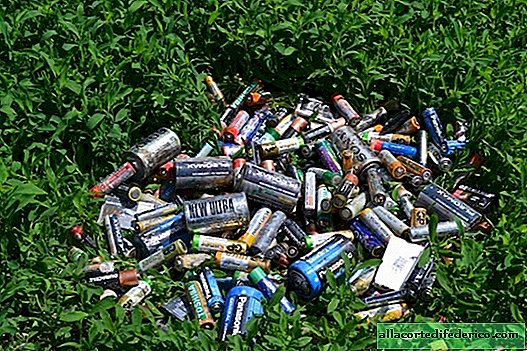New batteries created that will not pollute the environment
Many people know that the most common batteries that are found in many electronic devices, including smartphones and tablets, pose a significant environmental hazard. They contain toxic compounds, and that is why they cannot be thrown into a garbage container, but must be recycled. This requires additional time and is not always possible, since not all cities have collection points for used batteries. American scientists offer an original solution to the problem of recycling used batteries: they created batteries that do not need recycling at all, since they consist of organic compounds.

Engineers suggest using protein compounds different for the cathode and anode as the material for the electrodes. Synthetic polypeptides not only perfectly cope with the function of the electrodes, creating the desired voltage, but also do not require additional measures for disposal. So far, developers have announced the creation of a battery that can create a voltage of 1.5 volts. This is a standard indicator for regular finger batteries, which are installed in the remote control from a TV or children's toy. But 1.5 volts is too small to support the smartphone.

All modern smartphones and tablets run on lithium batteries (lithium-polymer or lithium-ion). The normal operating voltage in them should be in the range of 3-4.2 volts. Thus, an environmentally friendly novelty can replace them only if it is possible to create a similar analogue. But the engineers do not intend to rest on their laurels and will continue to improve batteries based on polypeptide compounds.

















